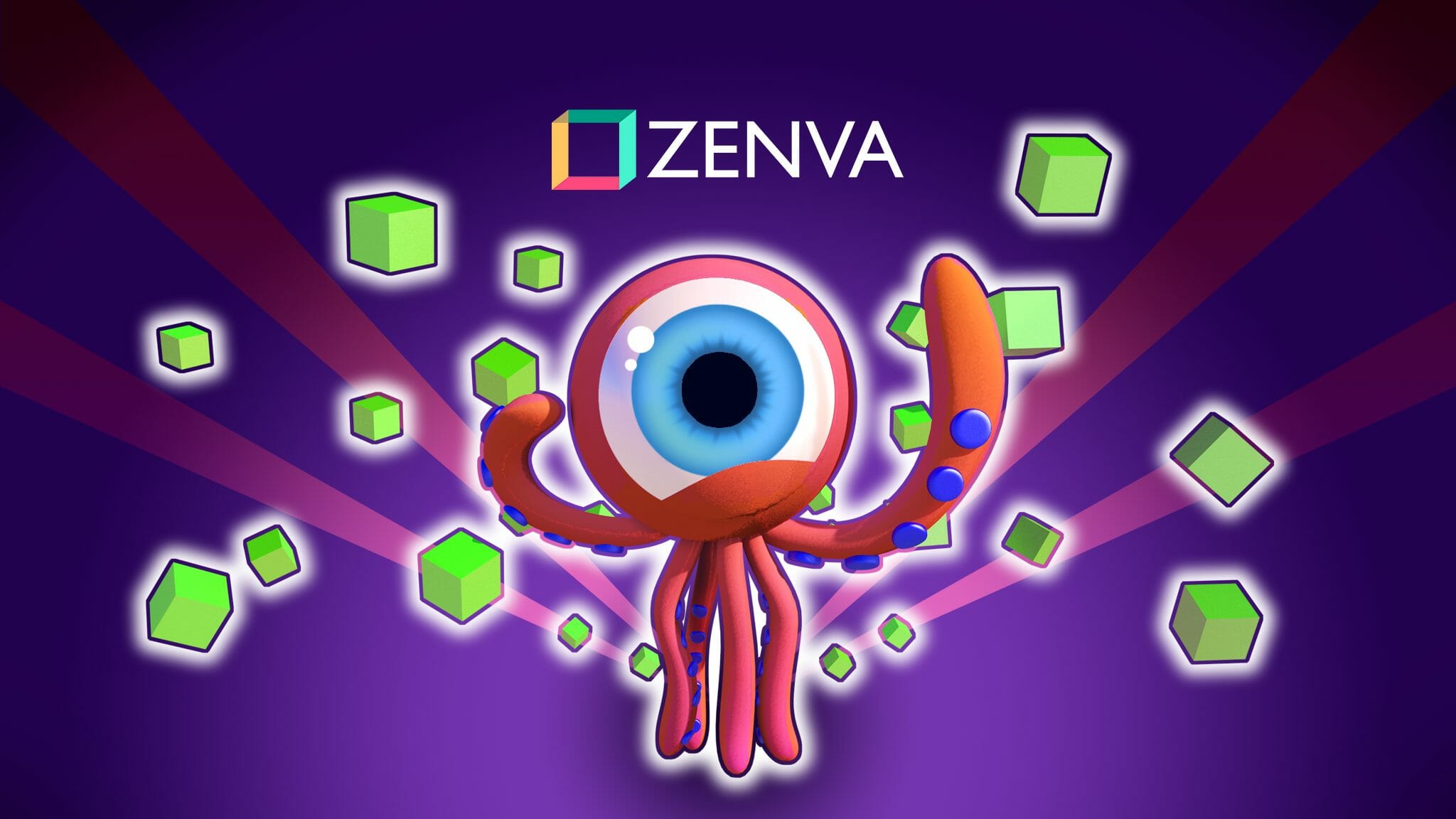Whether for fun, escapism, competition, or something else, many people in the world play games. In fact, according to research obtained by Gaimin, the gamer population is about every 1 in 3 people – which suffice it to say is a lot!
With this huge of an audience, there is also a huge demand for game developers. Thankfully, many players have wanted to take that next step of setting aside their controllers (or keyboards) and putting on their creative hats to make their own games and pursue video game development. However, this next step may not be so clear, especially if you only have a vague idea of what a game developer actually might be doing all day, let alone how you might actually take the steps to become one. In this post, we’re going to talk at length not only about what a game developer is, but also some simple steps you can take to become a game developer! If you’re ready to change your career path or start a new hobby in video game development, let’s dive in!

What is a Game Developer?
We will first talk about what a game developer is. You can’t exactly become something if you don’t have a general idea about that in the first place, after all.
In short, a game developer is someone who makes games – whether at their own direction or at the direction of someone higher up. They are the creators who take the idea for a video game, and perform the magic needed with code and graphics to make that idea a reality.
While this is a simple definition, there is a lot more to it than meets the eye. This is because the process and general activities of a game developer contain several steps that, at the heart, are completely different from each other. Additionally, game developers can also specialize in specific subfields. So, even if the activities stay the same for the whole video game development process as a whole, what the game developer focuses on might be extremely distinct from what another game developer on the same team is doing. Let’s talk about both of these in-depth though.
Activities
A game developer’s general activities can be divided into four main parts seen commonly for video game development, though keep in mind these won’t tackle every small detail that is involved. However, this should give you a general overview of what to expect in terms of what the average game developer is up to and even what is involved with video game development!

Planning/Designing
The first activity of a game developer is to plan or design the game. You can’t exactly make something if you don’t know what you want. After all, a real-time strategy game is quite different from a turn-based RPG, which is in turn entirely different from an FPS game. So, a game developer will spend a lot of time planning out what sort of game they want.
Now, keep in mind, this goes beyond things as base as genre (though that is important for video game development). Game developers also need to design what specific mechanics the game will have. Will there be crafting? What about jumping and swimming? How will users interact with certain mechanics – UI or simply proximity interaction from the player? How might a quest system be implemented efficiently?
There are tons upon tons of steps and questions to answer here, but each aspect of the game – even things like UI and story – need to be planned out by the game developer at this initial stage. Otherwise, the video game development process is likely to trip up as you get further along in the process.
A game developer, at this time, might also plan out the specific structures of the code that will become the game as well. Either way, this step of video game development is a very involved and robust process, but also an essential one that informs all the other activities a game developer participates in.

Execution
Once the game is designed, the next activity of the game developer is to oversee its execution – i.e. the actual creating part of the game with multimedia and programming. This is an activity that may vary depending on the game developer’s situation, though, as video game development is not an exact science.
For example, in some larger companies, a game developer may in fact delegate specific programming tasks to other members of the team, especially for things like UI/UX where it is often better to have someone who is specialized in that area of video game development. In those cases, the game developer would focus largely on overseeing the process and making sure the plan is followed.
More often though, and especially for smaller indie game developers, the game developer will do the programming themselves. In addition, a game developer for an indie studio may also be in charge of making the game assets themselves or, at the very least, making sure to obtain some whether through public domain, licensing, or providing a dedicated game artist details for a required asset. Again, though, as you can see, there is a lot to this aspect of video game development beyond just the word “making.”
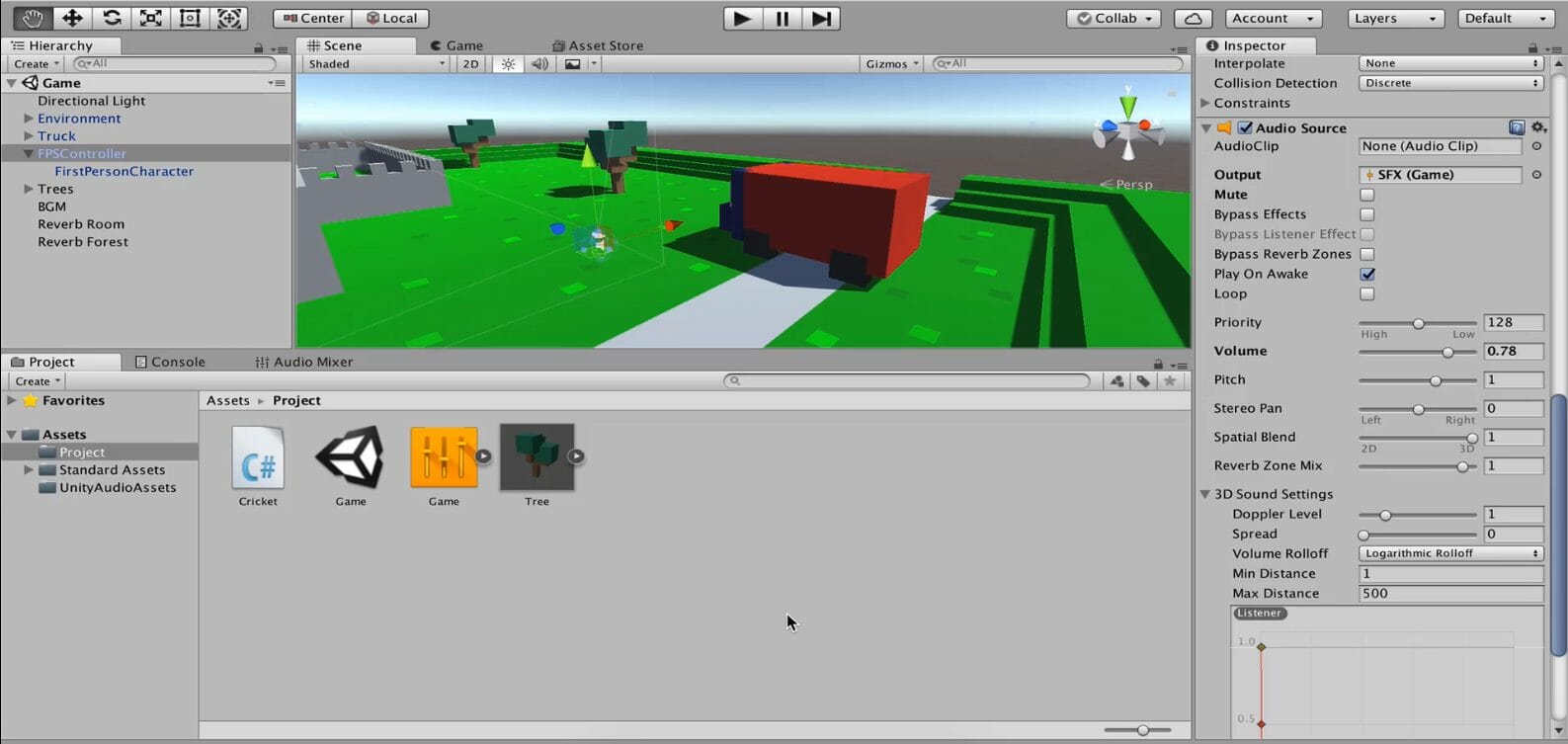
Testing & Debugging
The third main activity of the game developer is testing the game – which wildly varies from game to game and developer to developer. Of course, most game developers will, at the very least, playtest the game themselves to check for bugs during the video game development process. However, a game developer may also participate in bigger sorts of tests that involve organizing other groups of playtesters. These bigger tests can involve arranging mediums for feedback, organizing systems to process that feedback, and so forth.
Beyond this, a game developer, as part of the testing process, will also utilize several different sorts of tools to monitor for things like performance to make sure the game performs optimally on the target platforms it’s being released for.
Included in these activities, is, of course, processing any feedback and fixing the game accordingly. This can be a range of things from fixing bugs, to simply rebalancing a game to create the most enjoyable experience possible. How thorough this debugging process is largely depends on the game, but a game developer is still expected to polish their product as best as possible. So whether performance or bug fixing, each individual task adds up in the world of video game development.

Maintenance
The last major activity of a game developer for video game development can be considered maintenance. In some cases, this means what the activity literally implies: maintaining the game and creating patches for reported bugs through its support lifetime to make sure it still works. However, there are two more sub-activities here of importance.
First, in some cases, “maintaining the game” can also mean making more content for the game. This can include various DLC, server events for multiplayer games, and so forth. Of course, other activities play a role here, but keeping the game fresh and new for its audience can be a very large part of maintenance. This may also involve a lot of R&D through analytics and player feedback to determine the best course of action and what content players want. More content also generally means going through the entire video game development process again, so there is a bit of inception here where maintenance also means doing everything all over again.
Second, and an often overlooked part of maintenance, is documentation. Beyond making the game, the game developer is also usually in charge of documenting everything about the game’s construction. This is an important activity for game developers working in a team, as they may not be in charge of the game for its entire lifetime. As such, other game developers will need this documentation in order to take over activities for the project’s video game development.
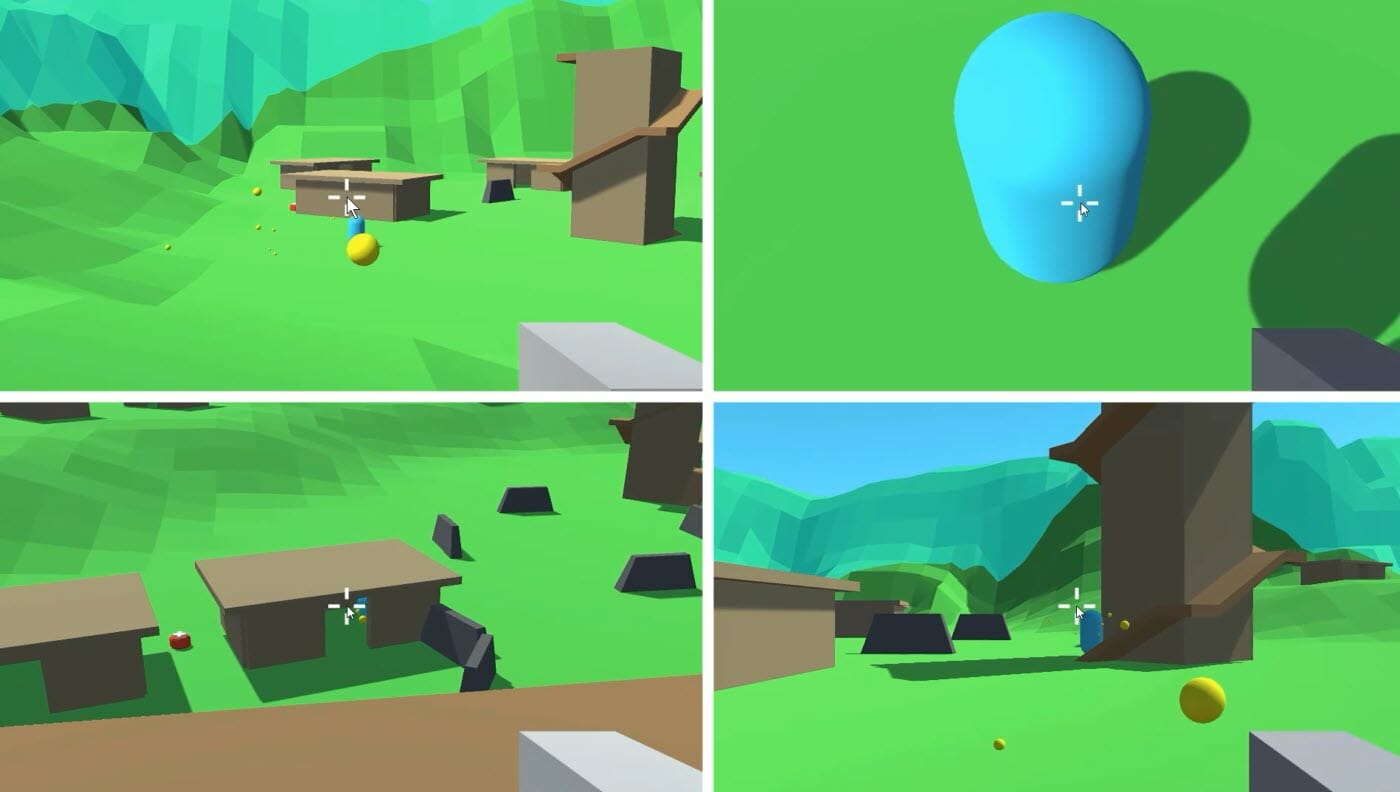
Summary
As you can see, making a game, and video game development as a whole, is not just simply waving a wand to make it happen. A game developer is someone who has to wear multiple hats in terms of their activities to see that game created. Planning, execution, testing, and maintenance all play a role for a game developer, and are the bulk of what defines what a game developer is!
Specialties
Earlier we mentioned that a game developer might also specialize in specific areas of video game development, which in turn influences the activities. Briefly, we’re going to talk about what some of those areas are and give an overview of what that specialty focuses on. This list won’t cover everything, but these are major areas you’ll find talked about a lot. You can find many more types of specialists throughout the game industry – as video game development only gets more complicated the bigger your project is.

UI/UX Developer
The game developer who specializes in UI/UX video game development is primarily concerned with – as the name implies – the UI/UX. Any button, inventory window, on-screen overlay for health, ammo, etc. falls into the realm of UI. These developers not only focus on designing both an intuitive and aesthetically pleasing UI, but also make sure that the UI is capable of integrating with the game’s overall mechanics. These developers also continually tweak the UI based on user feedback to ensure that everything about the UI is clear – as a bad UI can often ruin a video game.
Game Programmer
While most video game developers are programmers, there are those who specialize in the programming part and specifically become a game programmer. They take the execution activity one step further and become experts in knowing the most efficient coding techniques to get the job done, usually because they have a bit more computer science knowledge under their belt. While they of course participate in other activities for video game development, like planning how to implement mechanics, they do so always in the vein of the game programming. These specialists can often be turned to when more intermediate features are required or when certain programming-focused activitives, like porting a game to a different platform or creating an engine, are required. You may also see a game programmer used specifically for multiplayer features as well.

Game Designer
Similarly to a game programmer, while all game developers plan the games to an extent, a game designer is someone who specializes in the planning aspects of the game. They not only figure out what mechanics the game should have, but also focus a lot on balancing the entire game to make sure it’s fun. These designers may also play a big role in figuring out the setting and story in games as well, often working with writers to integrate these into the game as a larger part of the whole game design. Beyond this, a game designer may also be involved heavily in executing a prototype to ensure that the mechanics are sound and provide balance fixes for the larger video game development project.
Sound Designer
A game developer who specializes in sound design is one who is concerning with every aspect of sound involved with the game. This can include both the background music and the sound effects used throughout the game. These developers have a wide set of skills – including being able to collect and edit audio as needed. However, these specialists also need to be able to actually implement the sound files in-game by making sure they’re timed correctly (such as with animations). This specialty is one that leans more towards the creative side of video game development but is important for determining a large part of the game feel. And yes, this could be considered a sub-specialty of not just video game development, but game design.
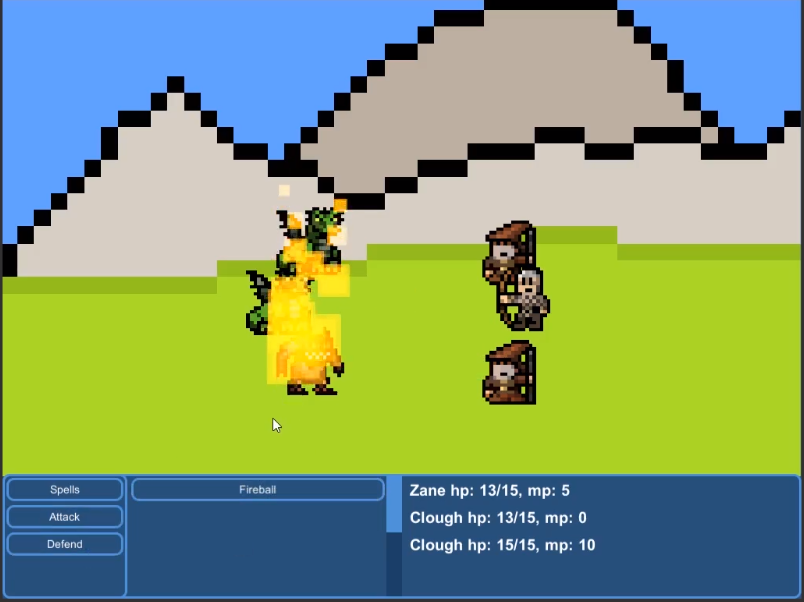
Game Artist
The game artist is someone who specializes in creating assets specifically for games, whether that be 2D pixel art or detailed 3D models. Of the specialties on this list, this is the one where the game developer does not necessarily need to know how to program, and they may be even less involved in the video game development process compared to others. That being said, a game artist does need to still understand a lot about the game’s technical features. For example, the assets may need to be different sizes, may need to fulfill certain criteria for platform performance, and so forth. As such, while definitely a creative specialization for those who don’t like programming, there are still a lot of technical features to master and continual asset tweaks to make after testing to get the game ready!
Game Animator
Last on this list is the game animator: the game developer who specializes in animation. These game developers are focused on taking the game assets they’ve received and animating the various actions that will be needed for the game. Beyond this, though, the game animators also will work on getting the animations working in the game. This can include making sure the animations play in the first place, that there are smooth transitions between animations, that the animations are timed correctly with collisions, and so forth. This is a well-rounded specialization for those who both like creative art aspects and technical game programming aspects, and can really be a robust specialization to pursue in terms of video game development.
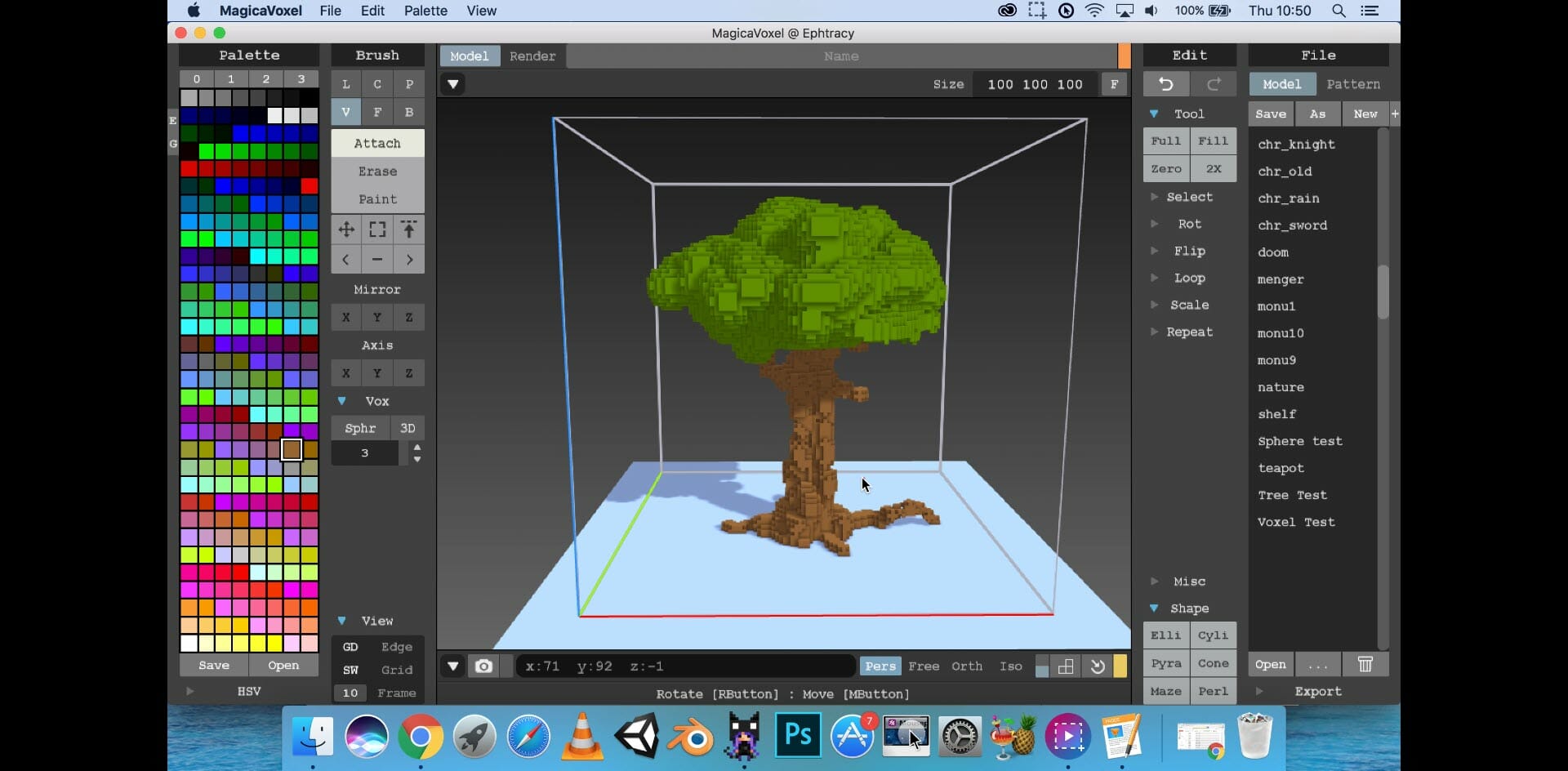
Why Become a Game Developer?
Now that we understand more about what a game developer is, let’s take a moment to talk about why you should become a game developer and master video game development!
In-Demand
As mentioned at the start of this article, game developers are in huge demand. According to CareerExplorer, there are currently 287,200 game developer positions in various specialties in the United States’ game industry alone. Between 2016 and 2026, this was forecasted to grow 9.3% – meaning there will be over 20,000 more jobs added over the course of this 10 year period. Again, just for the United States.
With video game developers present all around the world in various countries, and almost every country’s market increasing, the need to fill these positions is immense! Plus, video game development is an expanding industry, so you can expect it to get to other parts of the world soon too.
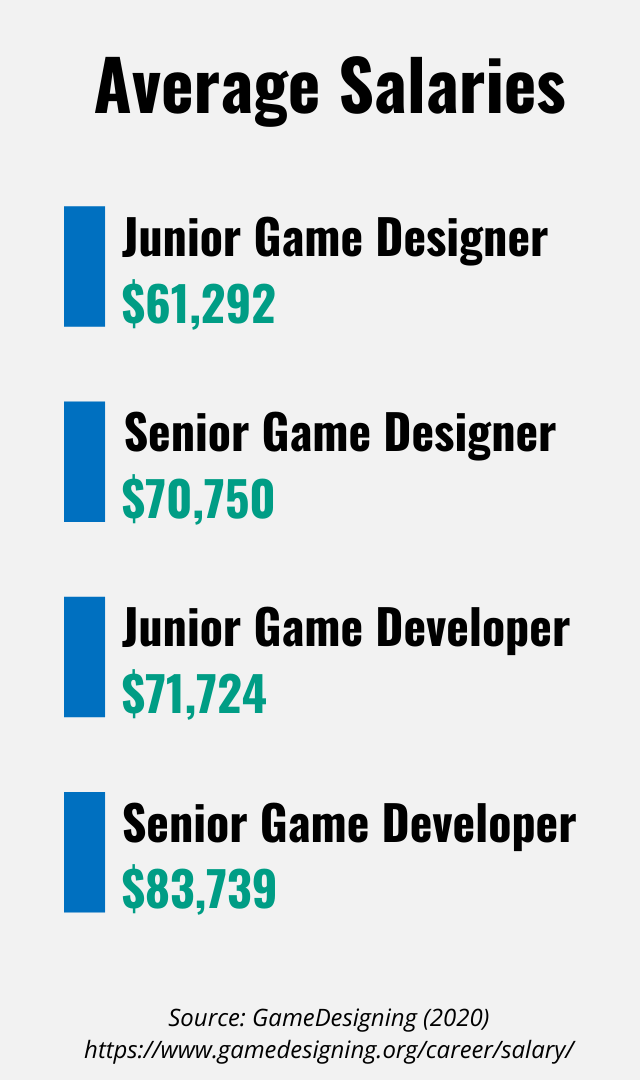
Salary Potential
While every location will differ slightly, there is no question that the earning potential for game developers is significant. According to GameDesigning, the lowest average salary in the US, which is for Junior Game Designers, comes at around $61,292. Meanwhile, the average Senior Game Developer can earn on average $83,739. Other specialties, like Game Artists, also have even higher potential. For example, as researched by CareerExplorer, even entry-level Game Artists in the US average at about $47,350/year, while top-level artists can earn as high as $144,820/year!
Whatever specialty you enter in the game industry, though, there is no doubt that you will be compensated accordingly!
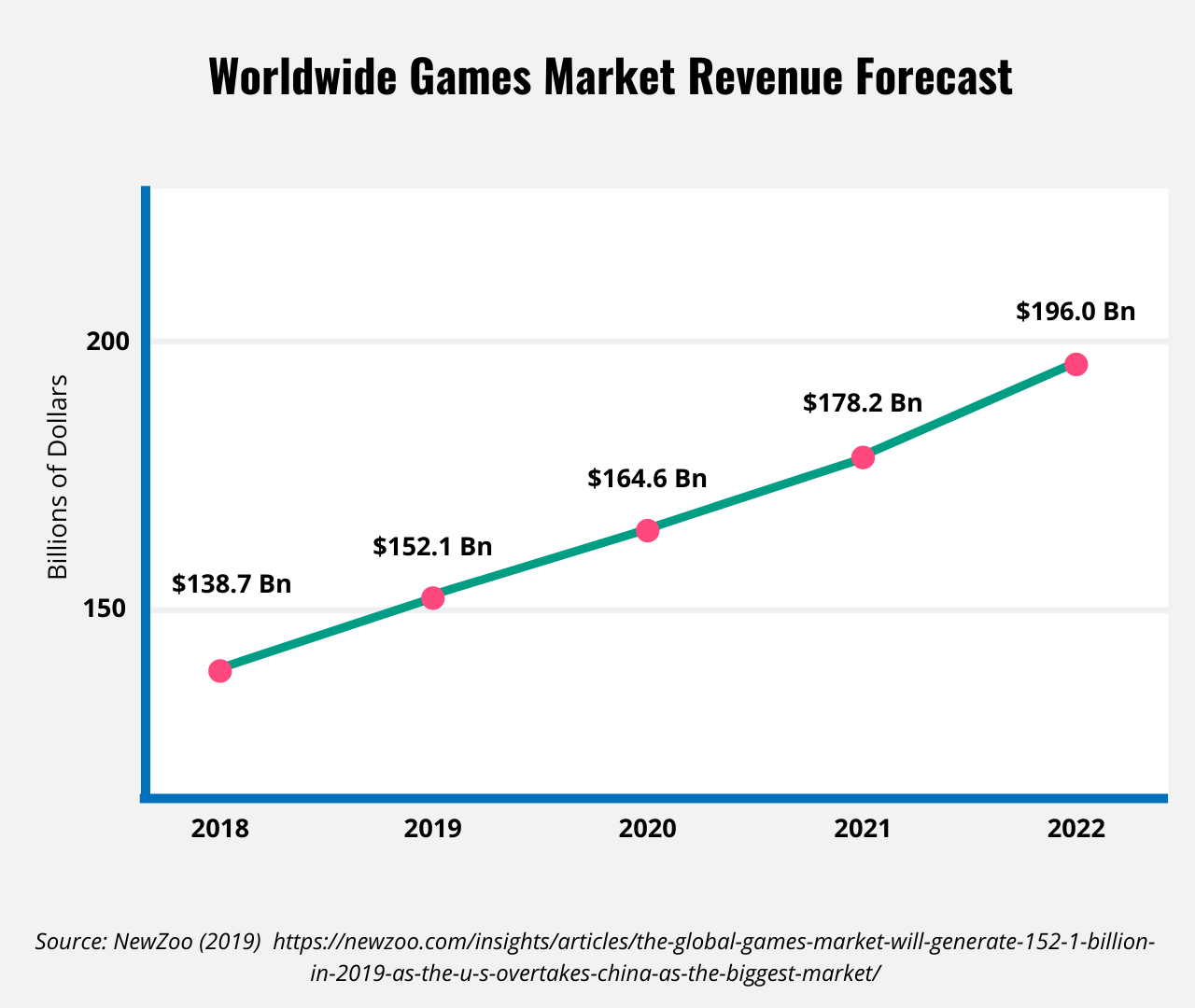
Market Growth
Though working for a professional company is all well and good, for those looking to strike out on their own, there is a huge pool of revenue potential for indie game developers. According to NewZoo, worldwide revenue for video games increases by billions of USD each year, and this trend is expected to continue well past the early 2020’s. Much of this revenue is made up by the mobile game market, where billions of dollars come from various monetization models.
Even tangentially related technologies, like VR and VR games, are seeing a trend upwards in revenue – as Statista shows in the image below.
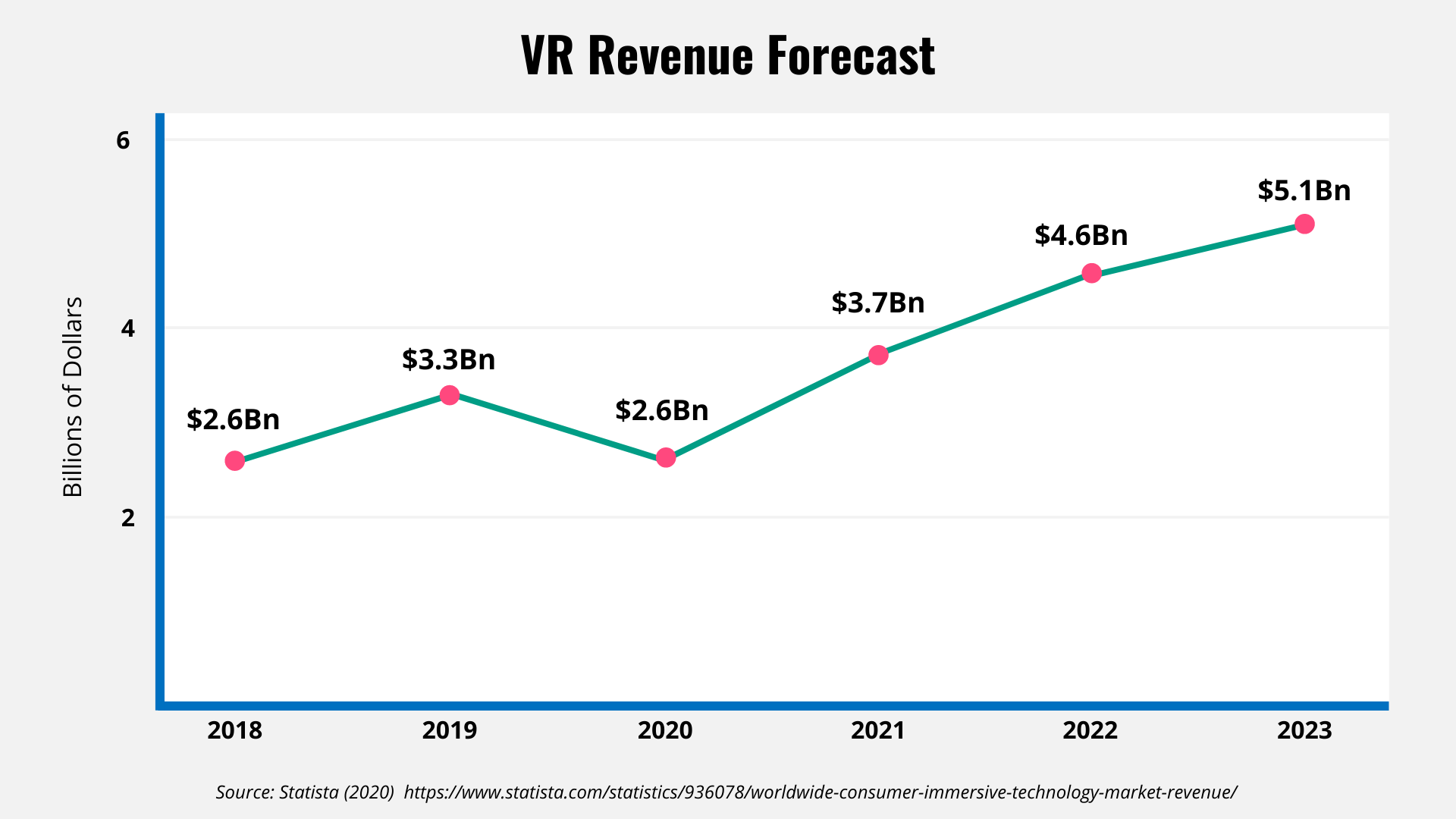
With revenue showing no long-term slowdown for video game development, this offers game developers plenty of lucrative opportunities to join the market themselves and create profitable games!
Indie Success
Things have changed drastically over the past few decades, and video games are no longer an industry where only AAA game studios are able to succeed. In fact, some of the most popular games to come out recently, such as UNDERTALE, Stardew Valley, and Disco Elysium, were made by indie game studios (or even 1-2 developers)!
According to Statista, from 2015 to 2017, the amount of indie games released on Steam nearly doubled over a period of June 13-August 13. With releases in the 1000s, there is no question that the game market is extremely accessible for any developer who wishes to get into video game development, and offers access to the intense market growth we mentioned earlier!
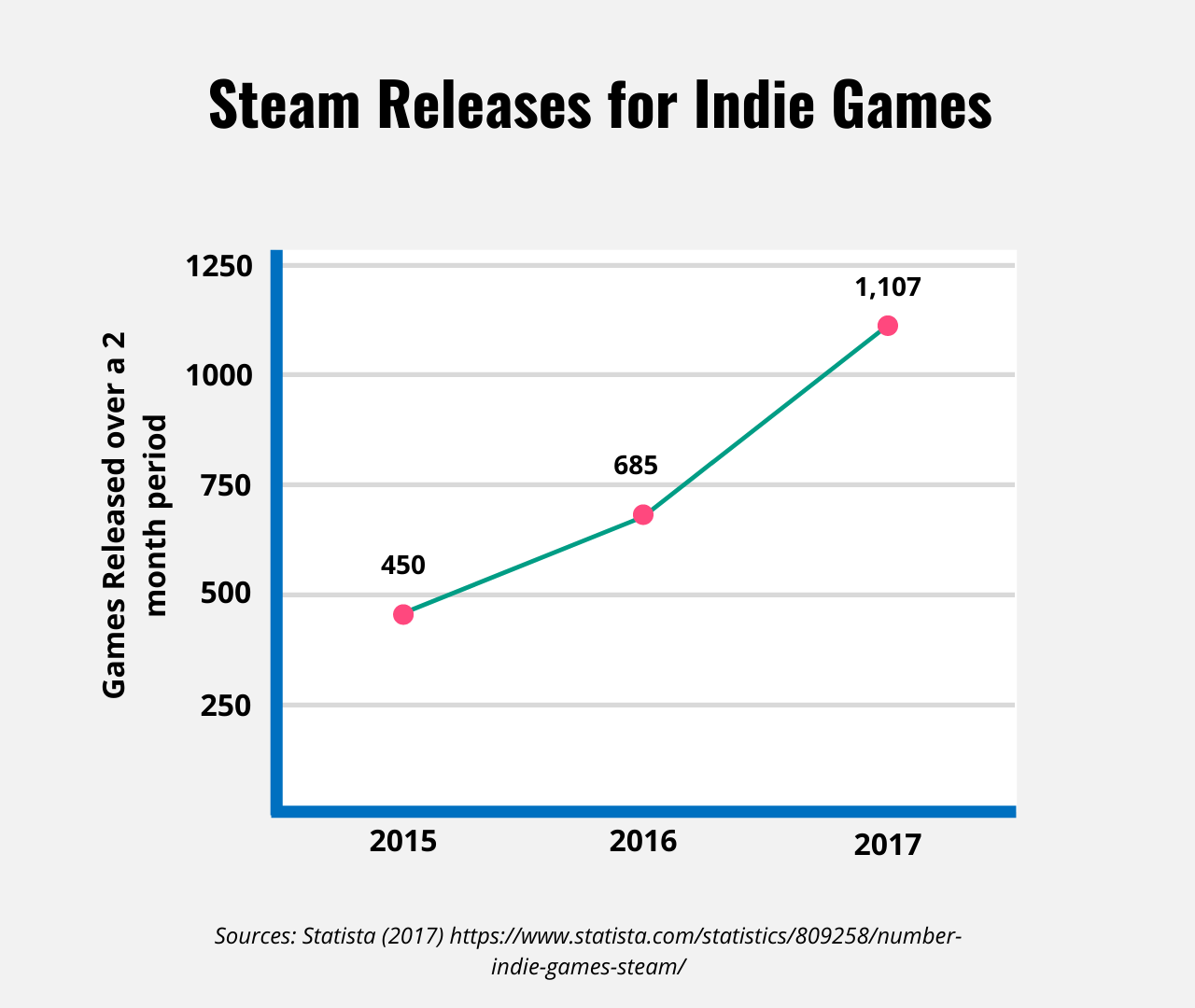
Pursue Your Dreams
The last reason to become a game developer is simply to pursue your dreams! If you’re reading this article, we imagine you have an interest in creating your own video games, whether as an individual, as part of a small team, or as a developer in a large studio. Whatever your goals may be, nothing could be better than pursuing your dreams to develop games and making them a reality!
How to Become a Game Developer
Assuming you’re now thoroughly convinced you want to become a game developer and join the video game development industry, it’s time to take that first step into making things a reality. With the resources and guidance below, we’ll walk you through just how to do that – with a primary focus on the indie developer path first and foremost.
Gain the Necessary Skills
As the saying goes, you need to learn how to crawl before you can walk. In this case, before you start making a game, you need to develop your programming skills. While you may want to focus on areas that you’re going to specialize in, at this stage, it doesn’t hurt to learn a little of everything. This includes the basics of making and importing game assets, how to program, and how to work with a game engine. As mentioned, many developers participate in the whole video game development process to some degree – so well-rounded knowledge can’t hurt!
We’ve compiled a set of links below to help guide you along the path. However, you may also wish to check out our article on programming languages or on game engines as well – as this will help you decide which skills you should be learning for video game development. That being said, don’t be afraid to explore other programming languages as well!

Game Art
- (Premium) Game Artwork Academy by Zenva
- How to Use Materials in Unity by Daniel Buckley
- Unity Animator Tutorial – Comprehensive Guide by Tim Bonzon
- Video Game Sound Design and Audio in Unity by Daniel Buckley
- HOW TO GET STARTED MAKING GAME ART ! by Blackthornprod
- Full 3D Game Asset Workflow Explained – Getting Started by Stylized Station
- How To Find Your ART STYLE (In 6 Minutes!) by Royal Skies LLC
- Blender Beginner Tutorial Series by Blender Guru
Programming
- (Premium) Intro to Programming Bundle by Zenva
- (Premium) C++ Programming Bundle by Zenva
- Coding 101 Bundle – Programming Essentials by Zenva
- Learning C# tutorial series by Allan Carlos Claudino Villa
- Best Programming Languages for Video Game Development by Lindsay Schardon
- The Easiest Javascript Game Ever by KnifeCircus
- C# Beginner Programming Series – Your First Day – Unity by SpeedTutor
- How to Get Started Programming in C++ by Nimish Narang
- Java Game Programming – Develop a Brick Breaker Game by Awais Mirza
- How to Program in C# by Brackeys
Game Engines
- (Premium) Unity Game Development Mini-Degree by Zenva
- (Premium) Godot Game Development Mini-Degree by Zenva
- (Premium) Unreal Game Development Mini-Degree by Zenva
- (Premium) HTML5 Game Development Mini-Degree by Zenva
- Unreal Engine 101 – 3D Game Creation
- Godot 101 – Game Engine Foundations
- Unity 101 – Game Development Foundations
- Phaser 101 – Introduction to Game Development
- How to Create a Game with Phaser 3 by Pablo Farias Navarro
- Beginner’s Guide to GameMaker Studio 2 by Shaun Spalding
- Beginner’s Guide to Kontra.js by Scott Westover
- Best Game Engines by Lindsay Schardon
Build Your First Game
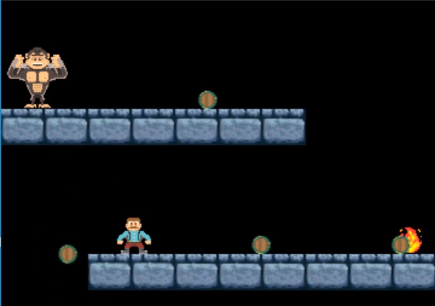
Once you’ve mastered the foundations and learned about things like variables, operators, and so forth, the next step is to jump in and apply it. While it might seem a little soon, as you probably haven’t even jumped into computer science here yet, most video game development is best learned and cemented in your skillset by simply doing and actively using it in a project. Now, of course, you’ll want to make sure the scope stays reasonable – i.e. don’t start making a massive MMORPG to start. However, building your first game is a necessity even if you are seeking work at a AAA company, since you need something to show you know what you’re doing. Once again, don’t be afraid to play around with programming languages at this stage, as this is also the part where you may find the language for you.
Below we’ve compiled a list of helpful resources and project tutorials so you can get those first video games created!
- (Premium) Create Your First 3D Game in Unity by Zenva
- (Premium) Create Your First 2D Game in Unity by Zenva
- 3D Game Development 101 – Create a Basketball Game by Zenva
- Create a City Building Game in Unity by Daniel Buckley
- Build a Road Crossing Game with Unreal by Daniel Buckley
- Coding for Kids: Languages and Project Ideas by Lindsay Schardon
- How To Create A Game Using JavaScript by Dani Krossing
- C++ Tutorial 18 – Simple Snake Game by NVitanovic
- Java Programming: Let’s Build a Zombie Game #1 by RealTutsGML
- Create a Unity FPS in 3 Hours by Zenva
- Create a Unity RPG in 4 HOURS
Build Your Portfolio

Whether an indie developer or someone seeking a career with a bigger studio, you’ll next want to build your portfolio – adding the game from the previous step as your first entry. A portfolio is what will actually provide the evidence that you do indeed know what you’re doing. Even as a solo indie developer, this can be important for various reasons, whether because you’ll need to freelance on the side when starting your move to video game development or because you want professional showcases as you build a dream team to help you make your next game project.
While building a portfolio is more or less repeating the step above until you have several games, there is an art to making the portfolio itself. So, below, you can find some resources on how to make the best portfolio possible.
- How to Build a Coding Portfolio by Daniel Buckley
- What is a programming portfolio? How do you create one? by Andy Sterkowitz
- All Software Developers NEED a Portfolio by ForrestKnight
- How To Build Your First Developer Portfolio by Sarah A
- Build a Portfolio Website & Deploy by Traversy Media
Showcase Your Work

You have some game projects and a portfolio. However, if you’re the only one who sees it, it doesn’t really help you get your name out there. The next step, then, is to actually showcase your video game development work to the public. This can mean sending your portfolio to companies, or it can mean posting your game publically on various platforms. Either way, you need to be front and center showing your work off to everyone. Not just for the fame, but also for the fact it’s a great way to get feedback and improve your craft as well!
We’ve included links on places you can post your work below:
Free and Easy to Post:
Requires Stricter Approval or License
Never Stop Learning
Finally, the last step to becoming a game developer is to never stop learning. New frameworks come out every month, engines like Unity have major updates every year or few years, new VR hardware comes out every year, and so forth. The technology around us is constantly growing, especially for video game development, and you need to be prepared to grow with it. There is also the fact that there are always more concepts and techniques to learn – whether that’s a complex programming algorithm you’ve never tried before or some new art tool that will speed up your workflow. So, keep growing and learning as much as possible, and keep some personal projects on the side to help flex your game developer muscles!

Conclusion
And that concludes our guide on video game developers!
Over the course of a few thousand words, we’ve helped you understand not only what a game developer does, but also how you can become a game developer. Now, there is a lot to this process we did not get the chance to cover. For example, game artists can actually be in itself divided into various subfields (3D modeler, 3D rigger, etc.), there are more tools than just profilers developers use to monitor game performance, formal education in terms of Bachelors degrees, and so forth.
However, we feel we’ve covered the broadest of strokes necessary to get you started so you can develop games. In the same vein as our last point above, don’t stop learning. There are plenty of resources available for you to conduct further research. Keep in mind, though, everyone’s path to becoming a game developer is also not the same. What works for you, may not work for anyone else. So, make sure to tailor your path to what your life goals and skills are.
Nevertheless, you’ve taken the first step, and we can’t wait to see where you go beyond here! Good luck, and may you create the game you’ve been dreaming of!
